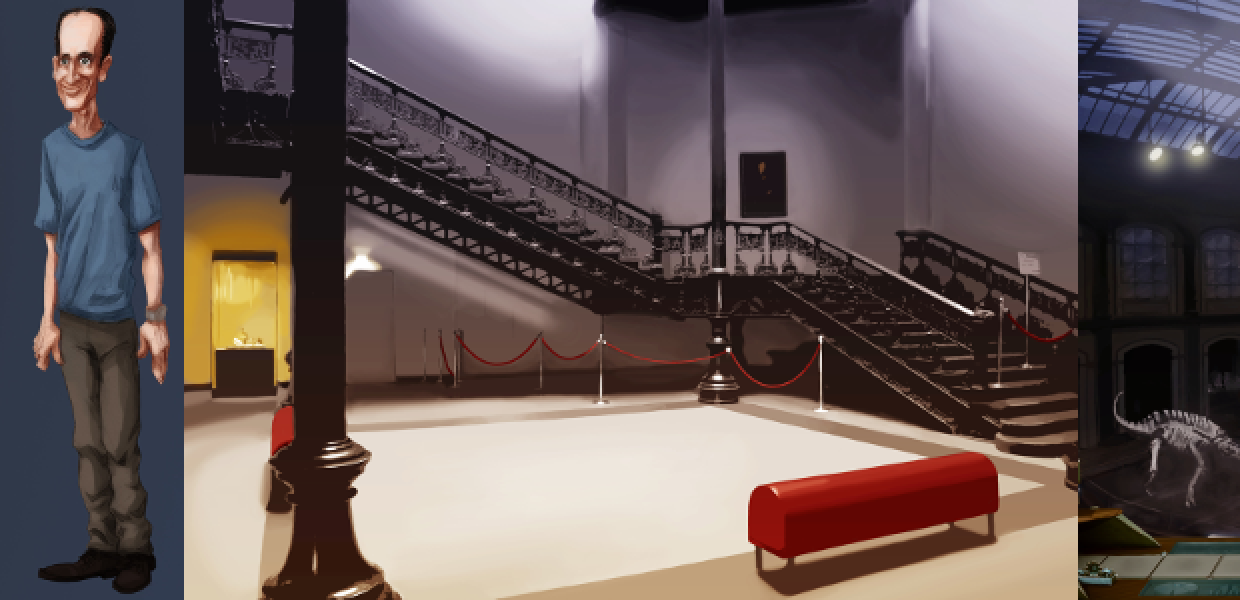Natural History Educational Games Underway

After the first co-creation workshop last May at the Prague National Museum, there has been significant progress in two different pilots for teaching and learning using natural history content. With the coordination from that museum and the Museum für Naturkunde in Berlin, as well as contributions from other Europeana Creative Partners, the development companies Exozet and Semantika are starting to give shape to two educational games which connect their educational features to Natural History content in Europeana.
One of the pilots will be an adventure game, a mix of a “point and click” adventure and a hidden object game. The user will take the role of an explorer of a natural history museum, solving different puzzles to unveil a big secret.
The educational factor of the game is in the need for the user to learn about history, science, evolution etc. while solving different puzzles. They will see real content from museum collections through the diverse digital objects that come via Europeana (from crabs to spiders or dinosaur’s bones).
First draft of the main characters and some of the scenarios for the game
The game’s primary target platform will be a tablet computer with touch interaction, and its development team are currently working on the design of the main screens and characters and the interactions of the first puzzles to solve, as well as the technical requirements for getting the content via Europeana.
The other pilot, more targeted at early primary school children, consists of a digital card memory game and quizzes, which will present high quality content from different themes in the natural history domain, also directly obtained via Europeana.
Mockups of two of the main screens of the game
It will be developed for different platforms such as tablets and mobiles, and will include the possibility for users to generate new playing card sets, editorial and questions. We hope that it will then be useful in different educational scenarios, from teachers generating homework to students creating their own sets as assignments, or even parents or curators preparing an ice-breaker activity prior to a visit to a museum.
The application will also generate questions and answers about the content the user has to match, in order to amplify its educational potential and potentially provide enriched data back to Europeana.


